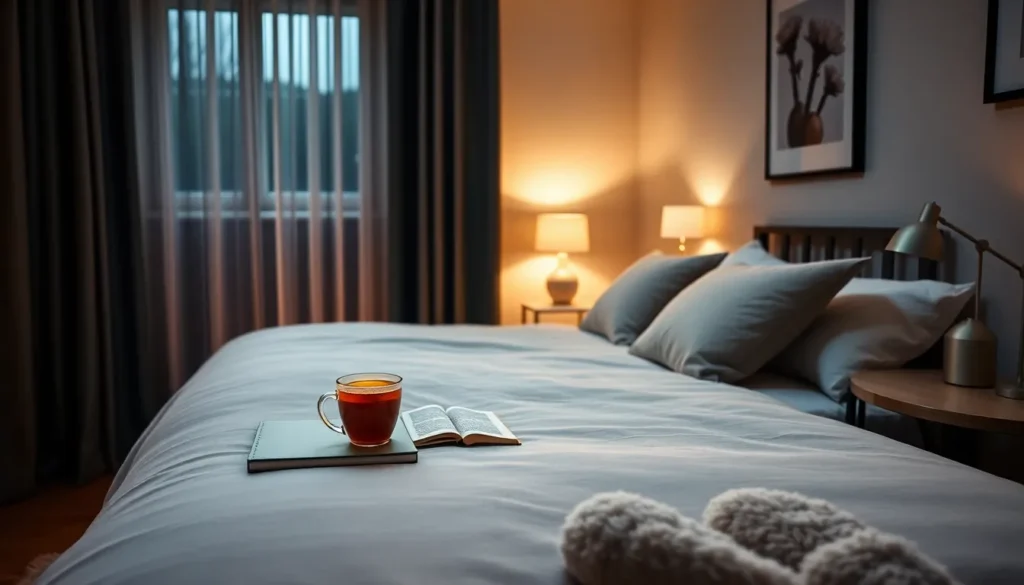Table of Contents
ToggleHave you ever tossed and turned in bed, convinced that the solutions to your sleepless nights are just out of reach? You’re not alone. Many find themselves stuck in this nightly battle, pondering over what really helps them sleep at night. Whether it’s a warm cup of herbal tea or the perfect pillow, it seems everyone has their own secret remedy. In this text, we’ll investigate into the science of sleep and explore effective strategies to help you (or someone you know) drift off into dreamland faster than ever before. No more counting sheep or scrolling through social media at 2 AM. Let’s take a journey into the world of restful slumber and learn how to reclaim those precious z’s.
Understanding Sleep: Why It Matters

Sleep isn’t just a luxury: it’s a biological necessity. During those blissful hours spent snoozing, the body and mind rejuvenate. Sleep helps repair tissues, bolster the immune system, and even consolidate memories. It’s essential for maintaining overall health and well-being. Without enough restorative sleep, people often experience irritability, reduced cognitive function, and can even face long-term health issues like cardiovascular problems. Recognizing the importance of sleep lays the foundation for making it a priority in daily life. When people truly appreciate the role sleep plays, they’re more inclined to find solutions that suit them.
Common Sleep Challenges
Understanding common sleep challenges makes it easier to tackle them head-on. Many face insomnia, where falling or staying asleep becomes a nightly ordeal. Others struggle with sleep apnea, a condition that involves sudden interruptions in breathing while sleeping. Stress and anxiety also keep countless individuals awake, with racing thoughts that seem to spar with exhaustion. Also, lifestyle choices such as irregular sleep schedules, excessive caffeine intake, and screen time right before bed can sabotage even the best efforts to sleep peacefully. Identifying which of these challenges resonate most allows for targeted strategies to promote better rest.
Effective Strategies for Better Sleep
Implementing effective strategies can be a game-changer for those weary souls looking for a reprieve from restless nights.
The Role of Mindfulness and Relaxation Techniques
Mindfulness practices such as meditation or deep breathing exercises help center the mind. These techniques lower stress levels, making it easier to switch off the racing thoughts that plague many at bedtime. Also, incorporating a consistent wind-down routine, like reading a book or enjoying a warm bath, can signal to the body that it’s time to settle down.
Creating a Sleep-Friendly Environment
The bedroom should be a sanctuary for sleep. Keeping the room cool, dark, and quiet is crucial. Investing in blackout curtains can help keep external light at bay, and using earplugs may eliminate disruptive noises. Besides, choosing the right mattress and pillows significantly influences sleep quality, creating a comfy and supportive sleeping environment.
Diet and Its Impact on Sleep Quality
What we eat affects our sleep more than we might realize. Foods rich in tryptophan, such as turkey and bananas, can promote sleepiness. On the other hand, large meals, spicy dishes, and heavy snacks right before bedtime can lead to discomfort, causing individuals to wake up frequently. Alcohol may initially lull someone to sleep, but it disrupts the sleep cycle later on, making restful slumber elusive. Hydration plays a role too: while staying hydrated is healthy, drinking too much fluid before bed might lead to unnecessary trips to the bathroom. A balanced diet not only fuels the body throughout the day but also sets the stage for a peaceful night’s rest.
When to Seek Professional Help
Sometimes self-help strategies aren’t enough to overcome sleep issues. If consistent sleeplessness continues even though trying various remedies, seeking professional guidance may be necessary. Sleep disorders such as insomnia and sleep apnea often require diagnosis from a sleep specialist. They can recommend tailored treatment options, from cognitive-behavioral therapy for insomnia to CPAP machines for sleep apnea. Recognizing when it’s time to consult a professional can lead to significant improvement in sleep quality, transforming nights from restless to restorative.




